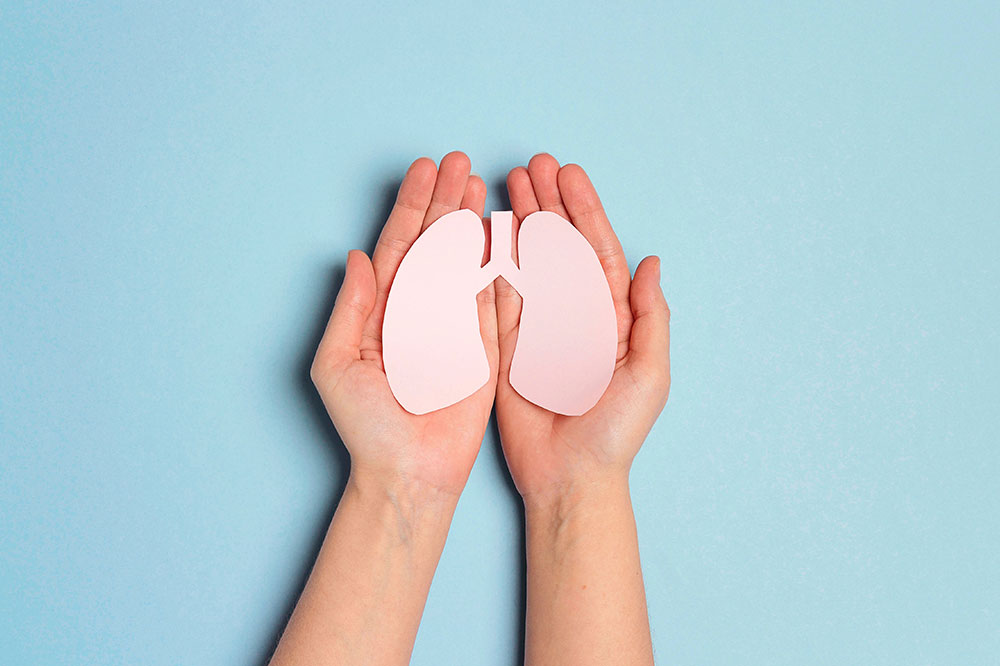10 early signs of poor lung health

Lungs play a vital role in breathing and oxygenating one’s body. Any disorders of this vital organ caused by inflammation can rapidly affect the rest of the body. However, many people may not realize they have lung problems until they become severe. Knowing the early signs of poor lung health can help individuals seek medical attention and prevent further damage. This article discusses some early signs of poor lung health and what they indicate.
Here are a few common signs of poor lung health:
- Shortness of breath: Difficulty breathing, especially after mild physical activity, could indicate poor lung function. Shortness of breath is also known as dyspnea, and it is a common symptom of many lung conditions, such as chronic obstructive pulmonary disease (COPD), asthma, and pulmonary fibrosis. A cold or flu virus can clog and stress out one’s lungs, causing shortness of breath. This compromised lung capacity can make one more susceptible to developing bacterial infections, including bacterial pneumonia or bronchitis. If one is experiencing shortness of breath, it is crucial to consult a doctor as soon as possible.
- Inability to breathe deeply: Poor lung health can make it challenging to fully expand the lungs, resulting in shallow breathing. It could feel like breathing deeply requires more effort. Breathing difficulties are a typical sign of pulmonary fibrosis, asthma, and COPD. It is critical to seek medical assistance if one has this symptom to identify its underlying cause.
- Cough: Wheezing and coughing may indicate the onset of asthma. Coughing lasting more than a month and producing mucus or blood may indicate poor lung health. A chronic cough is a common symptom of lung conditions such as chronic bronchitis, tuberculosis, and lung cancer. Labored breathing or wheezing may indicate airway obstruction or narrowing of the lungs.
- Pain in the chest: Any chest pain that persists for more than a month may indicate a lung condition. Additionally, one could feel pressure or tightness in the chest. The discomfort is frequently linked to lung infection, cancer, or inflammation. If one experiences fever, cough, and chest pain, one is encouraged to see a doctor.
- Excessive mucus: According to the American Lung Association, persistent mucus accumulation in one’s throat or chest may indicate lung disease. The airways produce phlegm as a protective measure against irritants or infections. In addition, one is advised to get a medical examination done by a qualified healthcare provider to ascertain the reason for chronic mucus production.
- Fatigue: Even light physical exercise may leave one feeling worn out or fatigued; it could be a warning sign of lung disease. Sleep apnea, a condition that can disrupt sleep due to breathing irregularities, might be linked to exhaustion, lethargy, and drowsiness. Fatigue also indicates that one’s oxygen levels might be lower than necessary. Fatigue is also linked to diseases like COPD and pulmonary hypertension. Experiencing fatigue for a long time can result in agitation, breathing pauses, headaches, and a dry mouth. It could be another sign of poor lung health if one finds it difficult to perform exercises or other physical activities.
- Leg pain: Lung problems can interrupt the blood flow and oxygenation in one’s legs, leading to potential blood clots. As a result, one may experience swelling or pain in the legs or feel that they have become too sensitive.
- Coughing up blood: One should consult a healthcare professional if they cough up blood immediately. This can be a sign of bronchitis or an infection. In extreme cases, this can be a symptom of lung cancer, in which case the cough can become life-threatening.
- Blue fingernails: Bluish or purplish discoloration of the nails could indicate cyanosis, a condition in which there is inadequate circulation of oxygen throughout the bloodstream. This essentially shows poor lung health.
- Weight issues: When the lungs cannot function optimally, one may experience a loss of healthy body mass without any changes in one’s food habits or lifestyle. Chronic respiratory infections can also result in this problem, so it’s important to consult a specialist for a proper diagnosis.
Poor lung health can significantly impact one’s daily activities. It may be affected by various factors. For example, it may be triggered by an allergic reaction to air pollution, mold, chemicals, dust mites, or the cold. Some may develop lung problems due to a family history of the same. Seeking timely medical help can not only help stop the symptoms from developing but also improve one’s overall quality of life.









